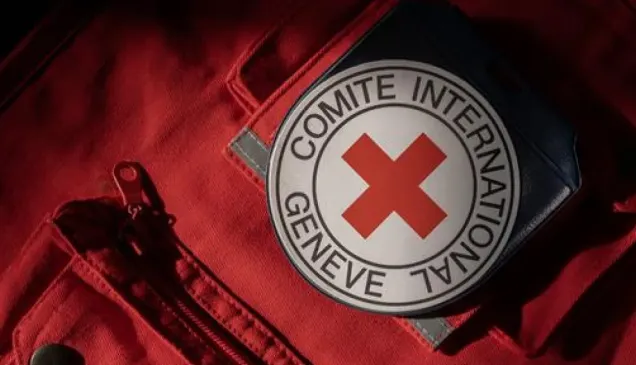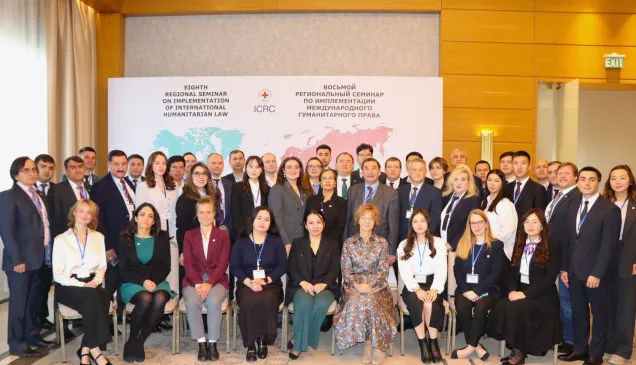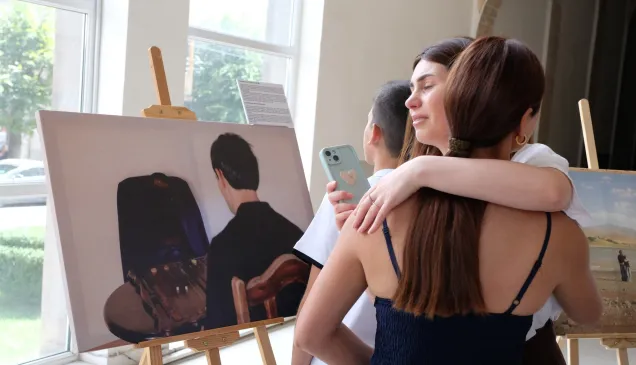The big family gathers in a small living room along with relatives, all huddled together on sofas and rows of chairs, some trying to squeeze in through the doors to cast a quick glance. They look like an audience waiting for a movie or a performance to begin. Holding their breath, the adults and kids alike, stare at a large screen hanging on the wall.
Nagorno-Karabakh conflict: Offering a lifeline to families of detained people
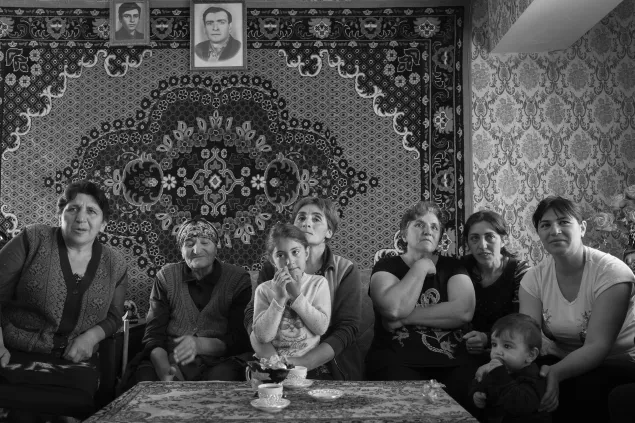
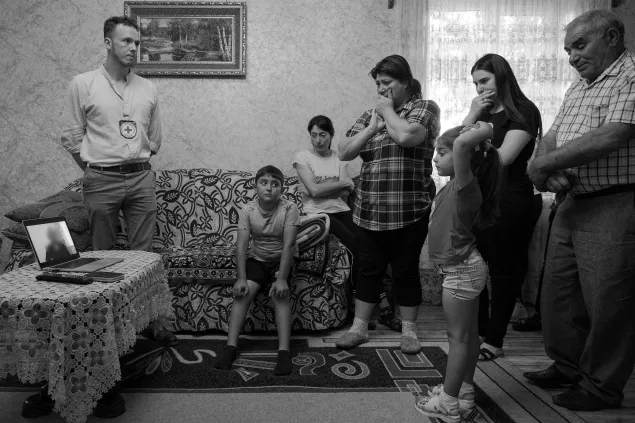
The video starts playing and he appears on the screen. The loved one, whom the family has not seen for months, sends greetings and warmth. For families in Armenia whose relatives are detained in Azerbaijan in relation to the recent escalation of the Nagorno-Karabakh conflict, these video messages delivered by the staff of the International Committee of the Red Cross (ICRC) are a ray of hope. Hearing directly from their loved ones is the only way these families know they are alive.
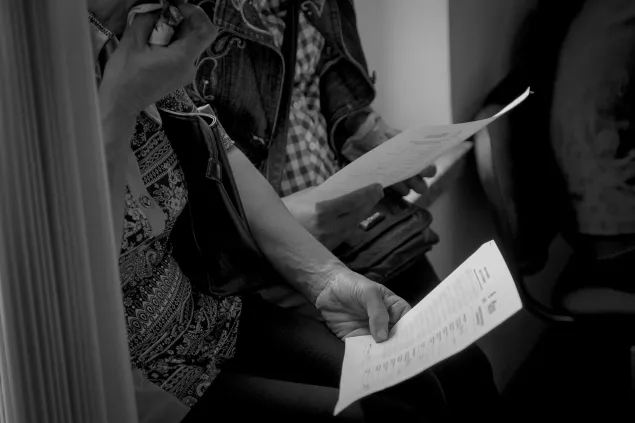
The ICRC visits people whose detention has been officially confirmed and helps them restore and maintain contact with their families. This is done through handwritten Red Cross messages (containing brief family news), verbal messages, phone calls and pre-recorded videos. Sometimes just a small handwritten letter or a two-minute video can change everything.
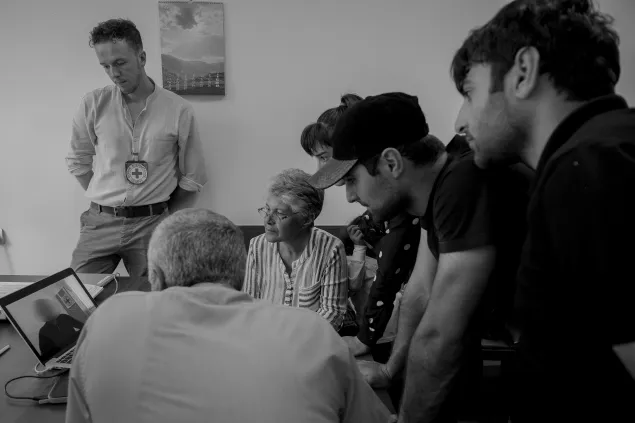
The ICRC has been in regular contact with the respective detaining authorities to obtain notification of and access to the detained. We also maintain a bilateral and confidential dialogue on the conditions of detention.
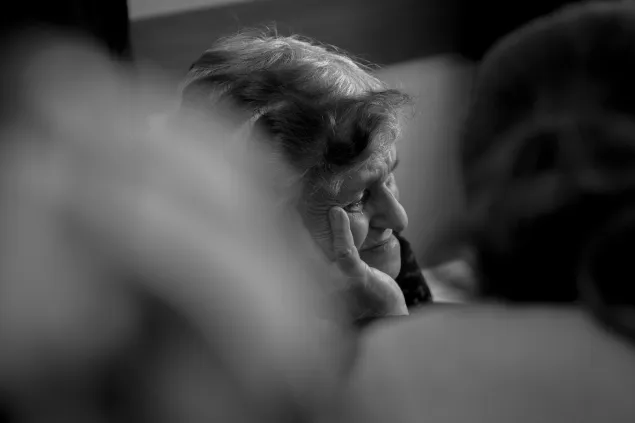
The old woman gasps as tears burn her eyes. Hearing her grandson’s voice and seeing him evokes mixed emotions: sadness and happiness, longing and pain, hope and uncertainty. The woman asks for the video to be played one more time; she can never get enough of him.
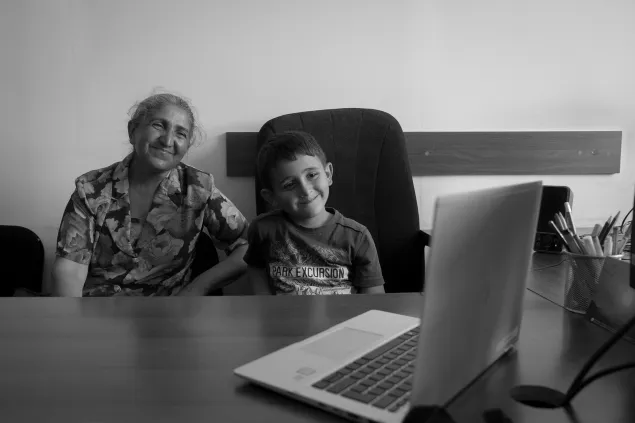
Everyone’s pain is the same, but some feel it differently. When the video message from the detained relative finishes playing, recording of the families’ response messages starts. This family chooses to smile and send some positive energy as they believe it will make their detained relative happy.
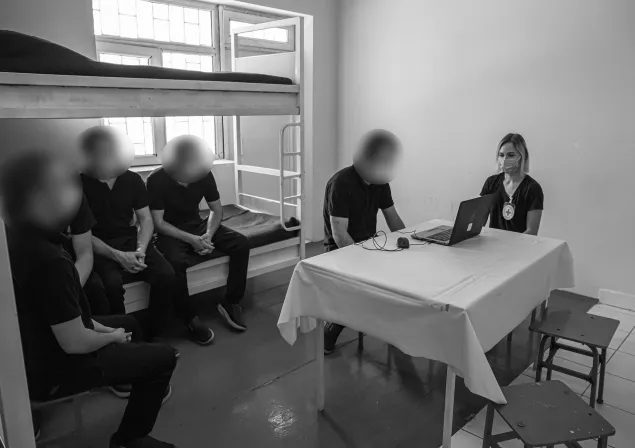
An Armenian detainee in Azerbaijan watches his family’s video message as the others wait for their turn.
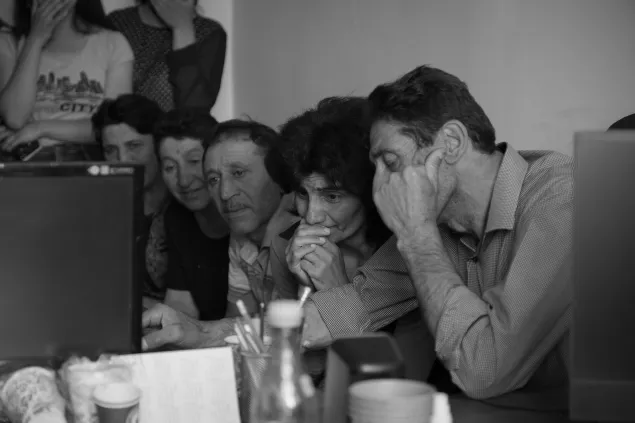
Besides helping to keep in touch with relatives, the ICRC teams also assess conditions of detention during visits, trying to ensure the detainees are treated humanely and with dignity.
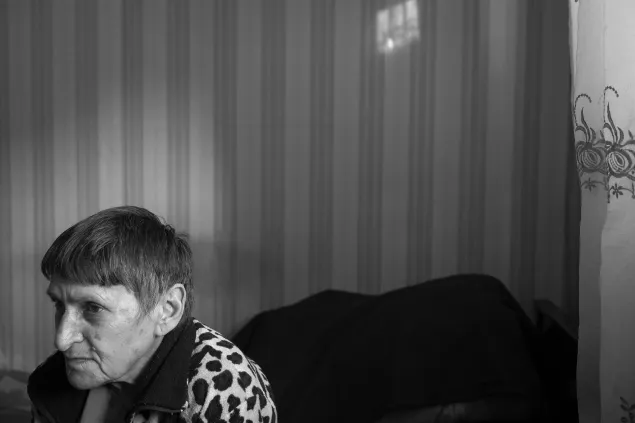
Mother of a detained person watches his video message.
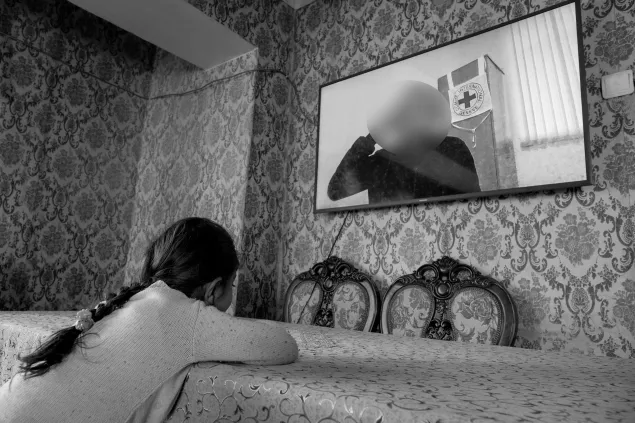
Resting her chin on her arms that are propped on an empty table, a little girl watches her father closely.
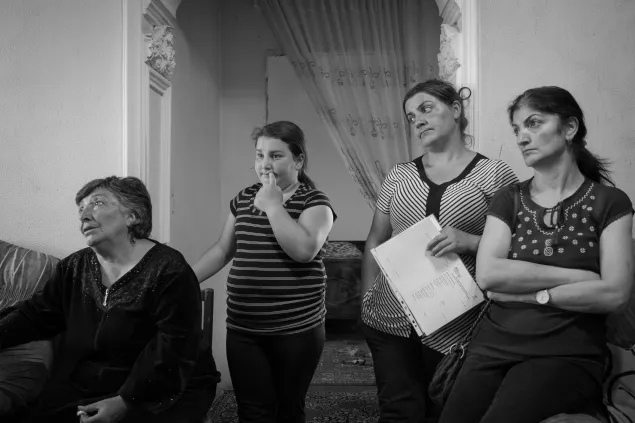
After watching the videos, families have numerous questions for the ICRC staff about the well-being of their loved ones and the possibility of their return. The ICRC is not involved in the decision by the authorities to release and return the detainees, including who will be released and where the repatriation will take place. At the same time, we may act as a neutral intermediary, if requested by the sides, to facilitate the safe return of detainees upon their own will.
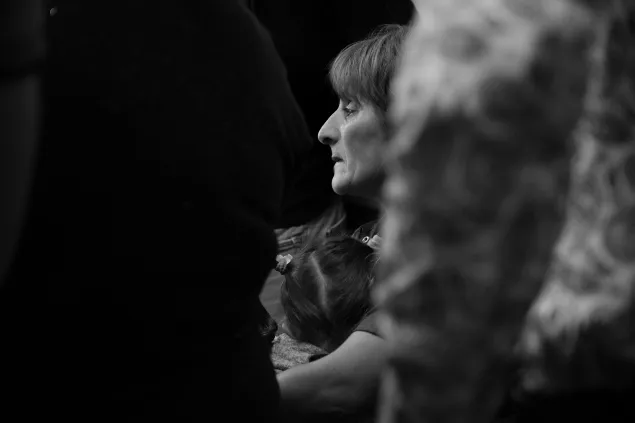
A woman watches her detained relative’s video message.
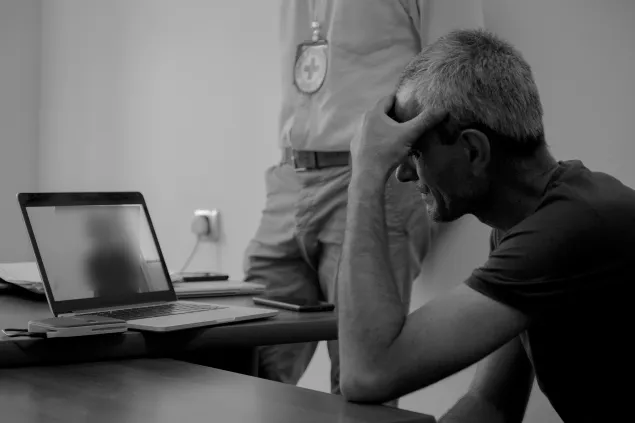
An emotional moment as a man silently watches his son’s video message. The uncertainty and wait are agonizing for families but being able to stay connected is a lifeline for people torn apart by the conflict. That is why we help to ensure that no one is forgotten.
The ICRC is an impartial, neutral and independent organization whose exclusively humanitarian mission is to protect the lives and dignity of the victims of armed conflict and other violence and to provide them with assistance. We also endeavor to prevent suffering by promoting and strengthening humanitarian law and universal humanitarian principles.
The ICRC visits individuals detained in relation to the Nagorno-Karabakh conflict on a regular basis. During these visits we assess their treatment and conditions of detention and facilitate their contact with the families. This is done on the consent of the respective detaining authorities with whom we agree on the means of communication, ranging from Red Cross messages and verbal greetings to phone calls and pre-recorded videos. The messages contain personal and family information and are intended for the exchange of news between the detainees and their relatives.

